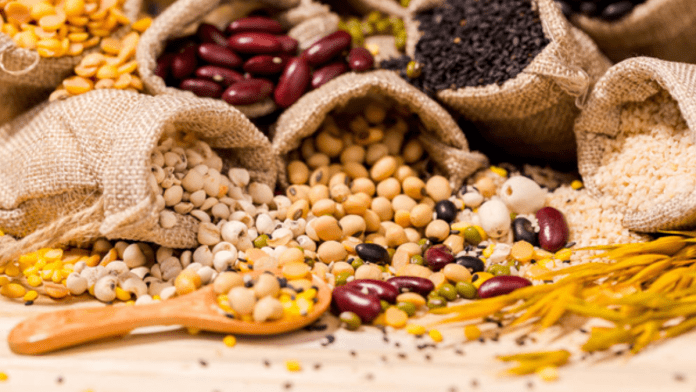News in Brief:
– India diversifies pulse imports, welcomes first shipment of urad dal from Brazil, aiming to mitigate supply chain risks and bolster food security.
– Strategic alliances with Brazil and Argentina offer opportunities for sustained pulse exports to India, addressing shortfalls and stabilising prices.
In a strategic move to diversify its pulse imports, India has welcomed its first consignment of urad dal from Brazil, marking a significant shift in the global pulse trade dynamics.
This move aims to mitigate the risks associated with dependency on a handful of exporting nations, enhancing India’s food security while impacting local farmers.
Addressing shortfalls with global collaboration
Facing disruptions in supplies from traditional sources like Myanmar due to internal security issues, India has turned to Brazil and Argentina for urad and tur dal imports. The government’s proactive engagement has paved the way for discussions and agreements with South American counterparts, ensuring a steady inflow of pulses into the Indian market.
Brazil and Argentina boast conducive weather conditions for cultivating pulses like urad and tur, presenting an opportunity for sustained exports to India. While domestic consumption in South American countries remains modest, their capacity to cater to Indian demands underscores the potential for mutually beneficial trade partnerships.
In 2023 alone, India imported nearly 3 million tonnes of pulses, with a significant portion sourced from countries like Australia, Canada, and Mozambique. Furthermore, the recent allowance of duty-free import of yellow peas until April 30 is projected to ease the strain on domestic supply, with additional imports expected from Canada and Russia.
To support both domestic farmers and international suppliers, India has implemented a zero-duty import regime for key pulse varieties until March 2025. This consistent policy approach provides clarity and encourages proactive decision-making among stakeholders.
Despite being a major pulse producer, India faces a slight mismatch between production and consumption, particularly for varieties like tur, urad, and masoor. This has prompted strategic alliances with nations like Mozambique and Malawi to secure consistent imports and stabilise prices amidst fluctuating inflation rates.



